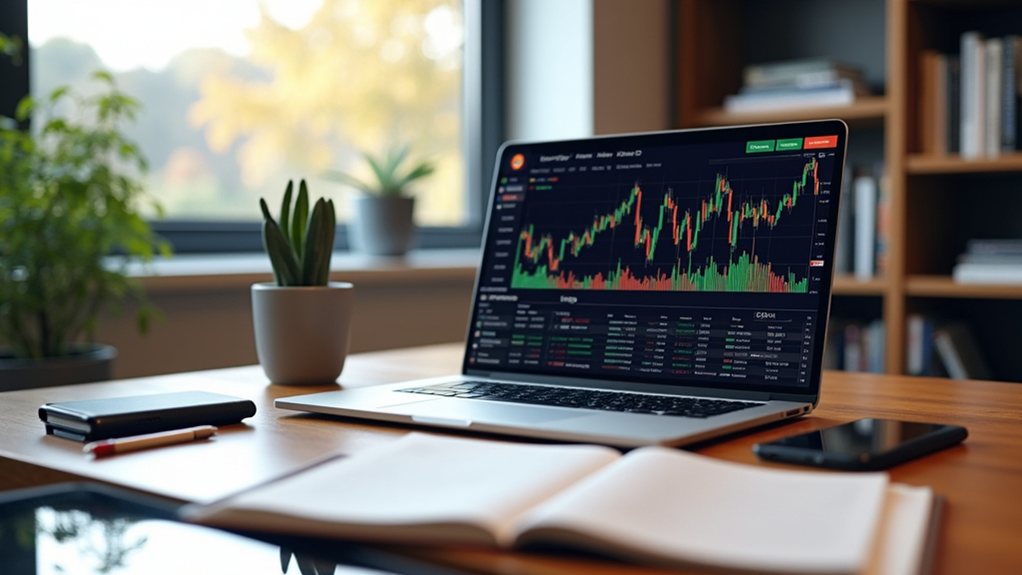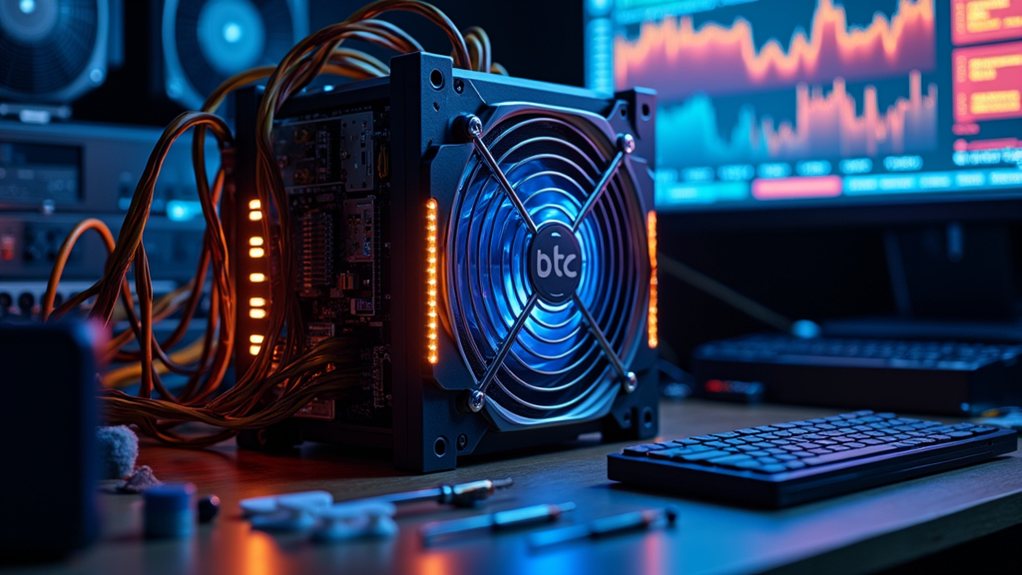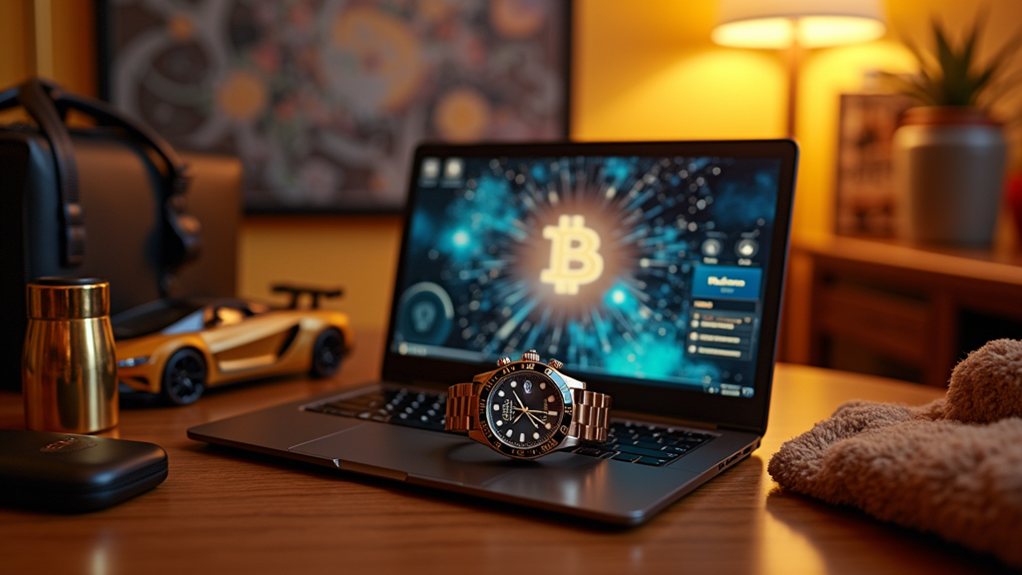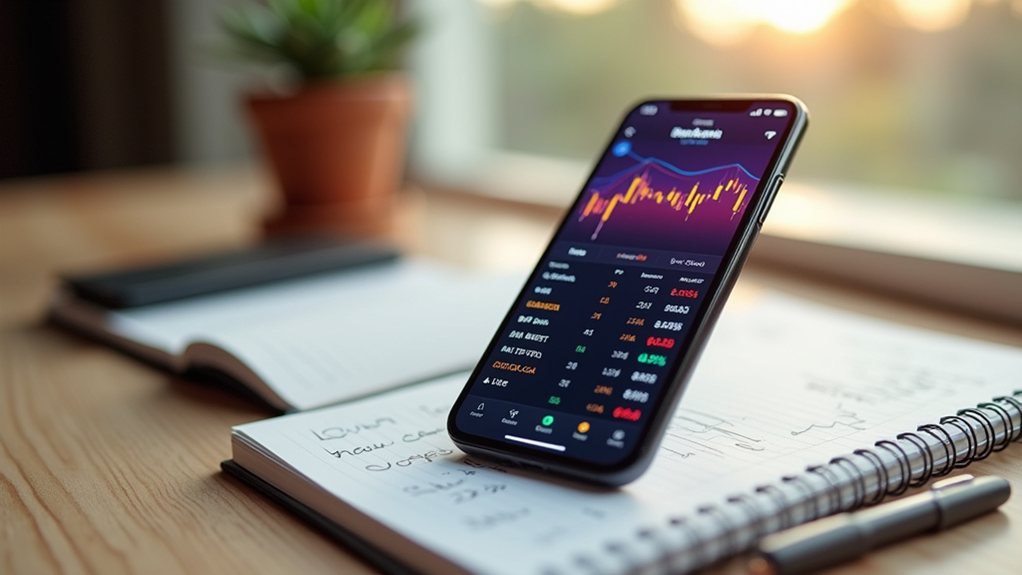Buying altcoins demands methodical steps. Research thoroughly, examining whitepapers and community engagement. Choose reputable exchanges with solid security and liquidity—Binance or Kraken work well. Secure your account with strong passwords and two-factor authentication. Fund wisely, double-checking wallet addresses before transfers. Manage risk by diversifying and never investing more than you can lose. Stop-losses aren't optional; they're essential. The pros don't just buy coins—they build strategies.

Seven steps separate altcoin novices from professionals in the cryptocurrency market. Most newcomers jump in blindly, throwing money at whatever coin has the coolest logo. Bad move. Professionals start with thorough research, analyzing market trends and historical data like they're preparing for a final exam. They scrutinize whitepapers (yes, actually read them), verify team credentials, and examine project roadmaps. The tech matters. The use case matters more. And community engagement? Essential. Dead Discord channels are red flags. Savvy investors also analyze the CMC Altcoin Season Index to determine optimal market entry timing.
Choosing the right exchange isn't rocket science, but it might as well be for some people. Pros compare fees and security measures meticulously. They check if the platform actually supports their desired coins. Liquidity matters—try selling your obscure altcoin on a ghost town exchange. Good luck with that. Regulatory compliance isn't sexy, but neither is having your funds frozen because the exchange was operating illegally in your jurisdiction. Customer support quality becomes painfully relevant when things go wrong. Experienced traders select platforms like Binance or Kraken that offer high liquidity and deep order books. Many professional traders utilize both direct exchange purchases and CFD trading for increased flexibility and market exposure.
Picking the right exchange separates the pros from the pretenders. Due diligence beats regret every time.
Account security isn't optional. It's non-negotiable. Strong passwords are just the beginning. Two-factor authentication is mandatory, not a suggestion. KYC processes are annoying but necessary. Smart investors keep login credentials offline—not in a text file called "crypto_passwords.txt." Hardware wallets aren't expensive compared to losing everything to hackers. They're insurance.
Funding your account requires attention to detail. Wire transfers might be cheaper than credit cards. Processing times vary wildly. Double-checking wallet addresses before hitting "send" takes thirty seconds but saves potential heart attacks. Crypto transfers aren't instant—patience pays.
Order placement separates the amateurs from the pros. Market orders are convenient but expensive. Limit orders give control. Stop-losses aren't for cowards; they're for survivors. Dollar-cost averaging beats trying to perfectly time entries. Low-liquidity markets eat inexperienced traders for breakfast through slippage.
Portfolio management isn't just holding random coins. Diversification works. Keeping tabs on project developments separates investors from gamblers. Tax implications don't disappear by ignoring them. Portfolio tracking tools exist for a reason—use them.
Risk management is where professionals truly shine. They never risk more than they can afford to lose. Position sizing at 1-5% per trade keeps emotions in check. Stop-losses aren't suggestions—they're requirements. Every pro has exit strategies for bull markets and bear markets alike. The market doesn't care about your feelings or financial goals. It will take everything if you let it. Pros don't let it.
Frequently Asked Questions
How Do I Safely Store My Altcoins After Purchase?
Safely storing altcoins requires strategy.
Hardware wallets like Ledger or Trezor offer maximum security by keeping private keys offline. Can't hack what isn't connected.
Software wallets provide convenience but come with online risks. Trust Wallet works for mobile users.
Paper wallets? Old-school but effective.
Smart investors use combinations. Small amounts in hot wallets for trading. Larger holdings in cold storage.
Two-factor authentication is non-negotiable. Backup those recovery phrases!
When Is the Best Time to Sell My Altcoin Investments?
Timing altcoin sales isn't a one-size-fits-all scenario.
Market cycles matter – selling 12-18 months post-Bitcoin halving often works. Technical indicators help. So does watching for euphoria and irrational exuberance.
Project fundamentals count too. Completed roadmaps? Team changes? Declining volume?
Macro conditions can't be ignored. Economic uncertainty, interest rates, regulations – they all affect crypto.
And personal goals? They're essential. Nobody ever went broke taking profits.
What Tax Implications Should I Consider When Trading Altcoins?
Traders face serious tax hurdles with altcoins. Every sale triggers capital gains tax—short-term if held under a year (ouch), long-term if over a year (slightly less painful).
Mining and staking? That's regular income. The IRS isn't joking around here.
Reporting happens on Form 8949, Schedule D, and possibly others. Record-keeping is essential. Mess this up, and penalties follow.
Nobody escapes the tax man. Not even crypto bros.
How Can I Spot Potential Altcoin Scams Before Investing?
Spotting altcoin scams takes detective work. Red flags everywhere if you look.
Anonymous teams? Run.
No whitepaper or roadmap? Big problem.
Promises of guaranteed returns? Classic scam move.
Check GitHub activity—dead repositories mean dead projects.
Those "too good to be true" tokenomics usually are.
Excessive hype without substance? Classic pump-and-dump setup.
Communities filled with bots rather than real discussions? Yeah, not great.
Can I Convert Altcoins Directly Back to Fiat Currency?
Yes, direct conversion from altcoins to fiat is possible. Major exchanges like Coinbase, Binance, and Kraken offer direct trading pairs with USD, EUR, and other currencies.
Select your altcoin/fiat pair, place a sell order, wait for execution, then withdraw to your bank account. Not all altcoins have direct pairs though. Some require conversion to BTC/ETH first.
Fees apply. Crypto debit cards and P2P platforms provide alternatives if direct exchange isn't available.








